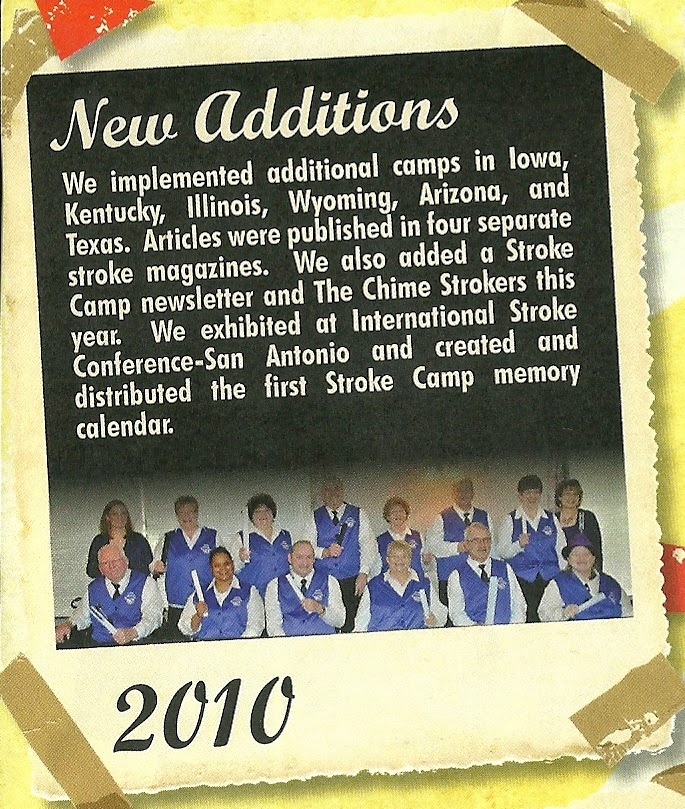article by Monica Vest Wheeler
song by Jessica Leza
I was so thrilled to put together this short video with photos I shot during the Retreat & Refresh Stroke Camp for the amazing folks in Odessa, TX, thanks to the generosity of the Medical Center Hospital.
The music is what our music therapist composed with the exact words of our stroke survivors who shared many emotional moments during the entire weekend in early October. I was privileged to be involved with the survivor group and hear and commit their thoughts to MY heart and soul … a constant reminder of why our mission at Stroke Camp is so vital and means so much to ME personally and professionally.
I was deeply moved by what I witnessed all weekend, as you can hopefully see in these images. I love these folks. I love all MY campers everywhere! I love MY life!
-------
Blog editor comment: Thanks to Marylee Nunley, our camp Executive Director, who sent me this song created by our music therapist, Jessica Leza, and to Monica for making the video.
Click here to see the survivor song video. This will open a new window so you can click back to this one while it's playing and read the words or sing along with Jessica. And, maybe, shrink the windows so you can get them in split screen so you don't miss the pictures.
Be aware that the video starts with the second sentence, "Have some patience; keep it slow; I know"
-------
Survivor’s Song (I Want You To Know) Stroke Camp (2014)
Someone told me long ago:
Have some patience; keep it slow; I know
This is my new normal.
I just want common courtesy.
Fatigue doesn’t mean that I’m lazy. I know
I am who I’m supposed to be.
I want you to know that I’ve changed, but I’m still the same.
I want you to know that the stroke doesn’t change what’s inside,
and I’m doin’ the best I can.
We try to do so much, people don’t understand or know
All the frustrations we have.
The simple things still make me happy: music, coffee, and my family,
I know we’ll get through this together.
I want you to know that the Lord’s come a long way with me.
I want you to know that our God isn’t through with me yet.
And today He has blessed us all.
If someday I’m feelin’ down, let’s just get out of the house.
Did you know I still like to try new things?
If I laugh at the wrong time, If I’m happy but I cry,
You know, I’m trying to get myself together.
I want you to know I feel proud to do things on my own.
I want you to know to call me if you’ve got lawns to mow,
Even if it takes me all day.
One last thing for you to know: even if my words get lost -
Just don’t tell me never, ever.
I’ve still got my mind and heart and those are the things I need
To get me where I want to be.
I want you to know that I’ve changed, but I’m still the same.
I want you to know that the stroke doesn’t change what’s inside,
and I’m doin’ the best I can.
************************************************************************





























.JPG)


.JPG)











.JPG)















